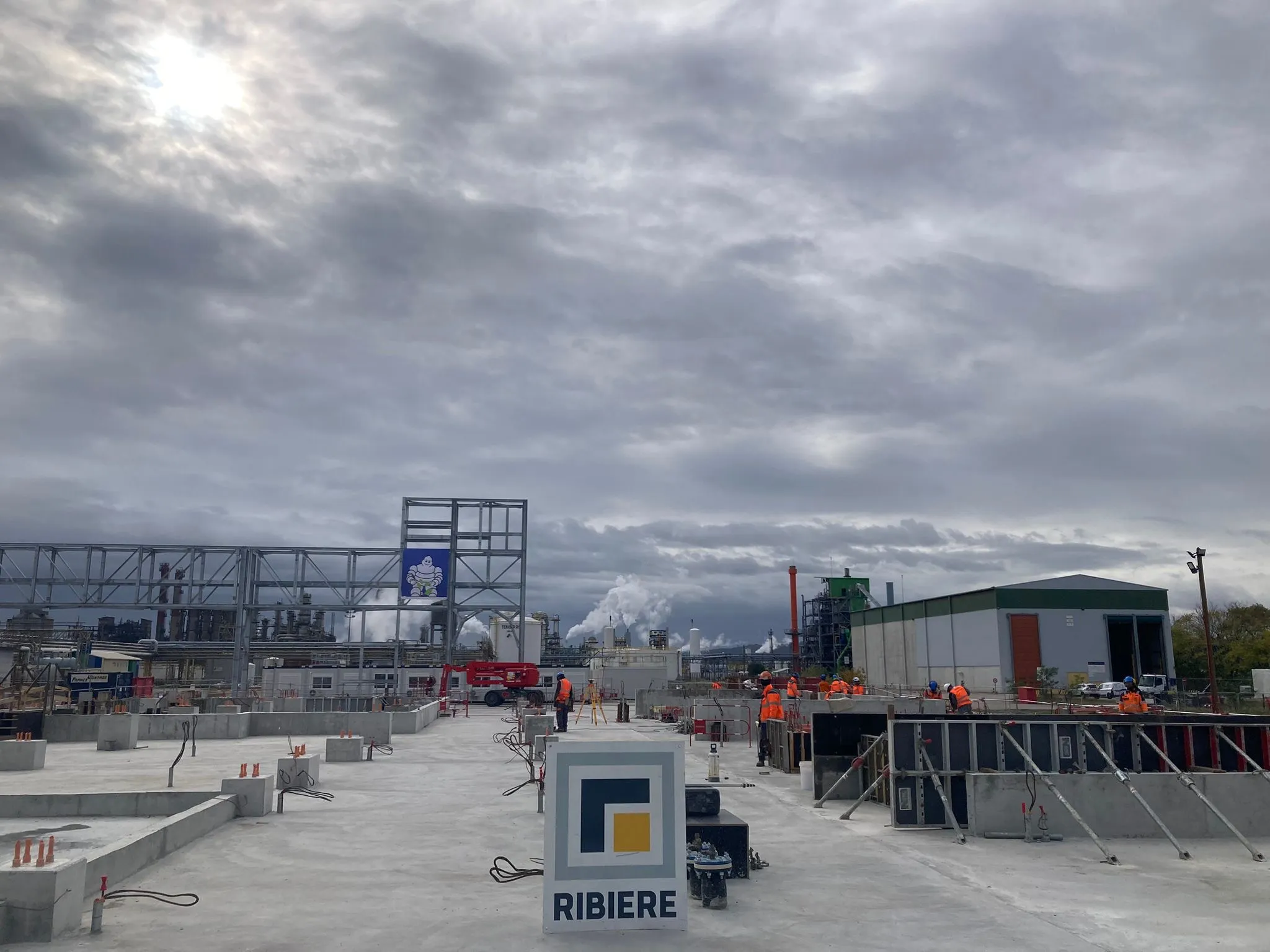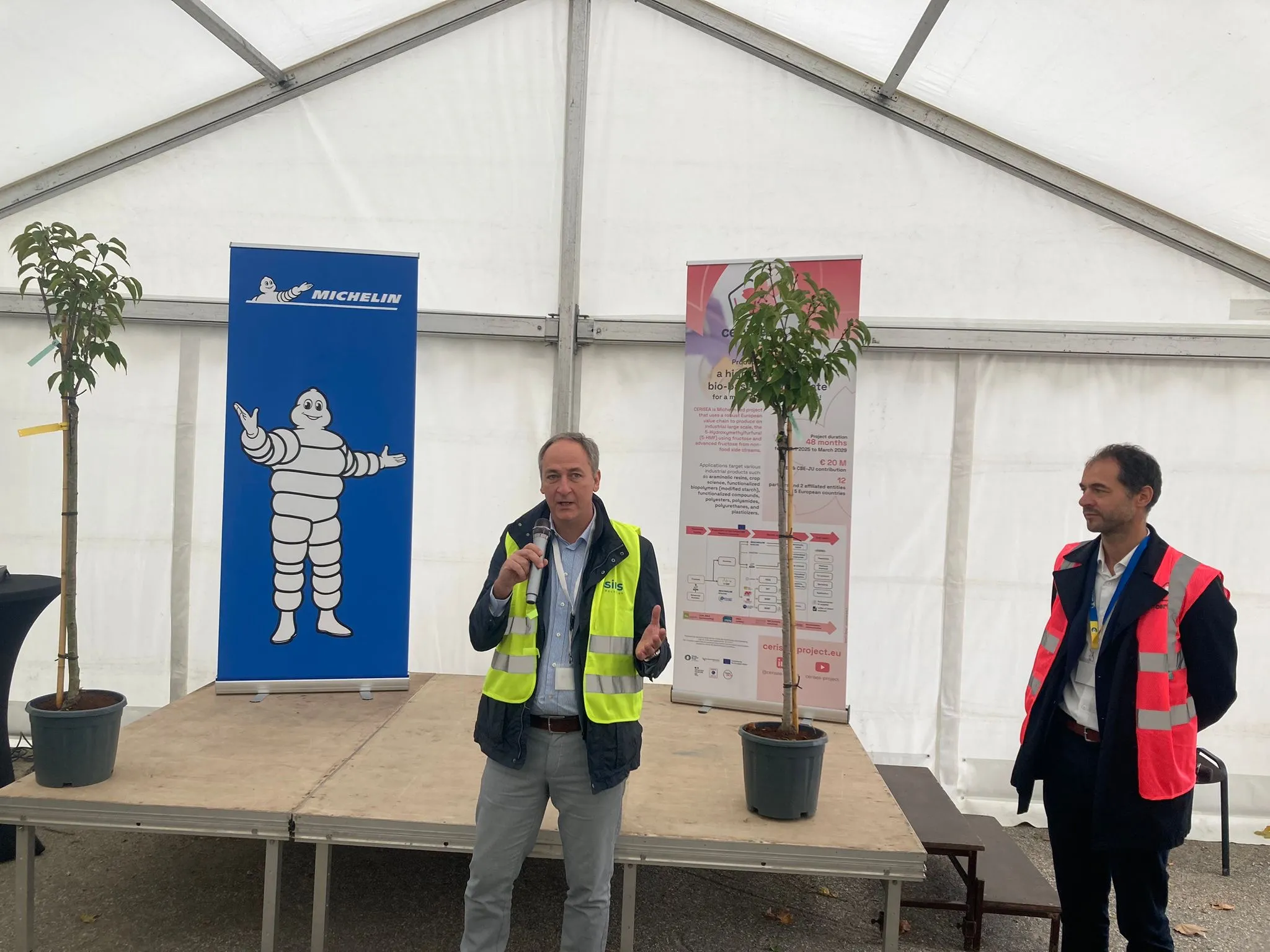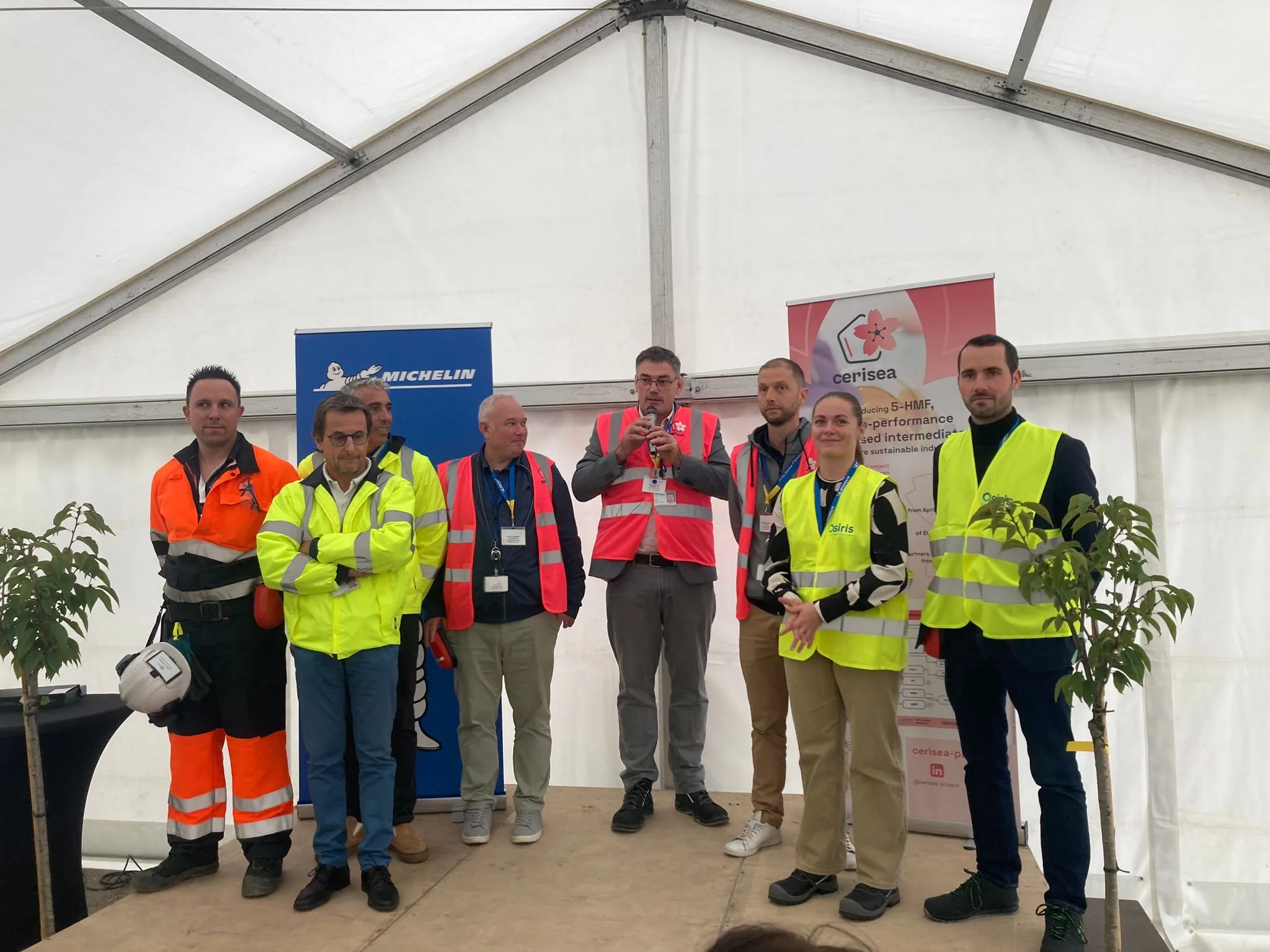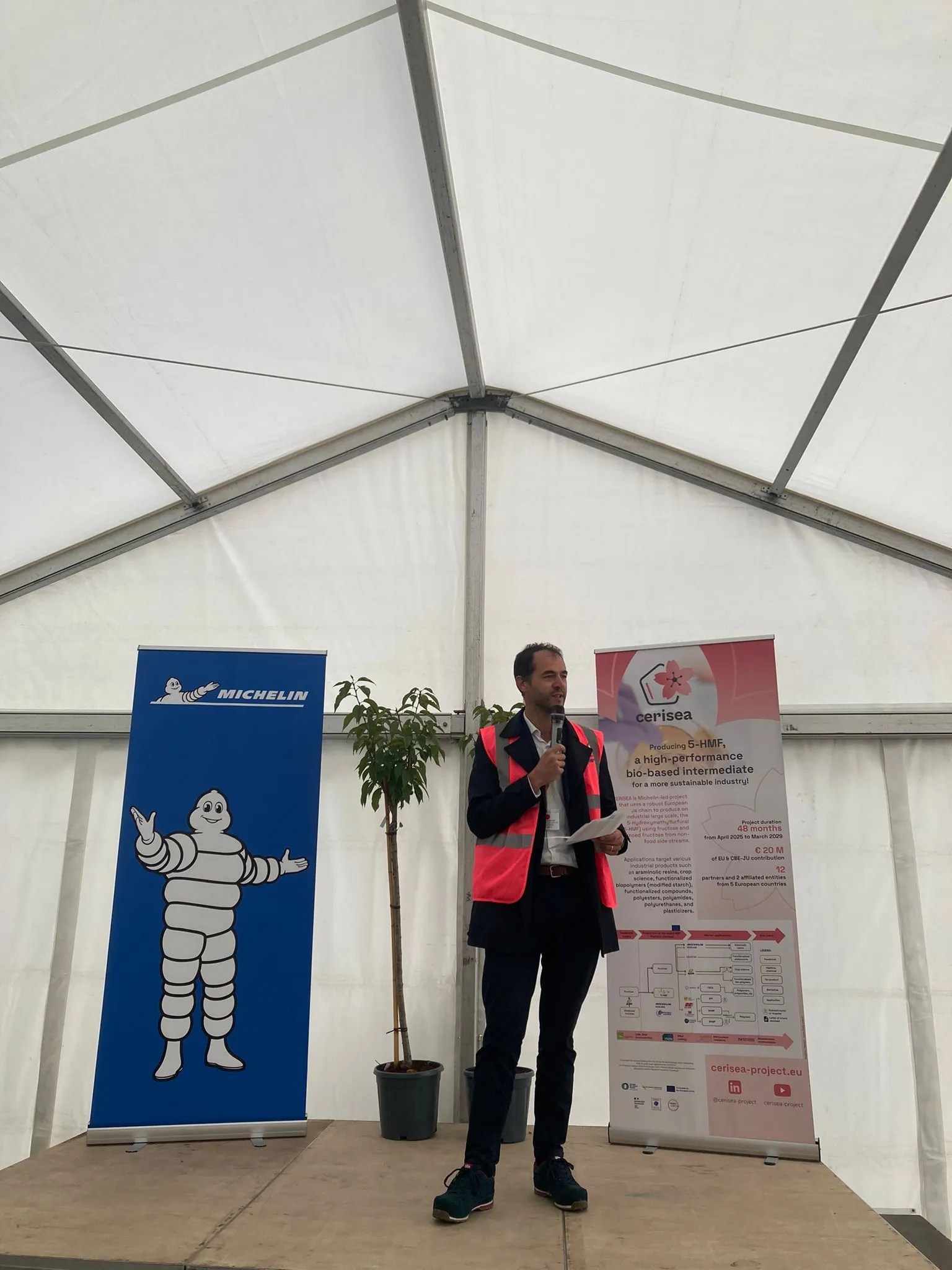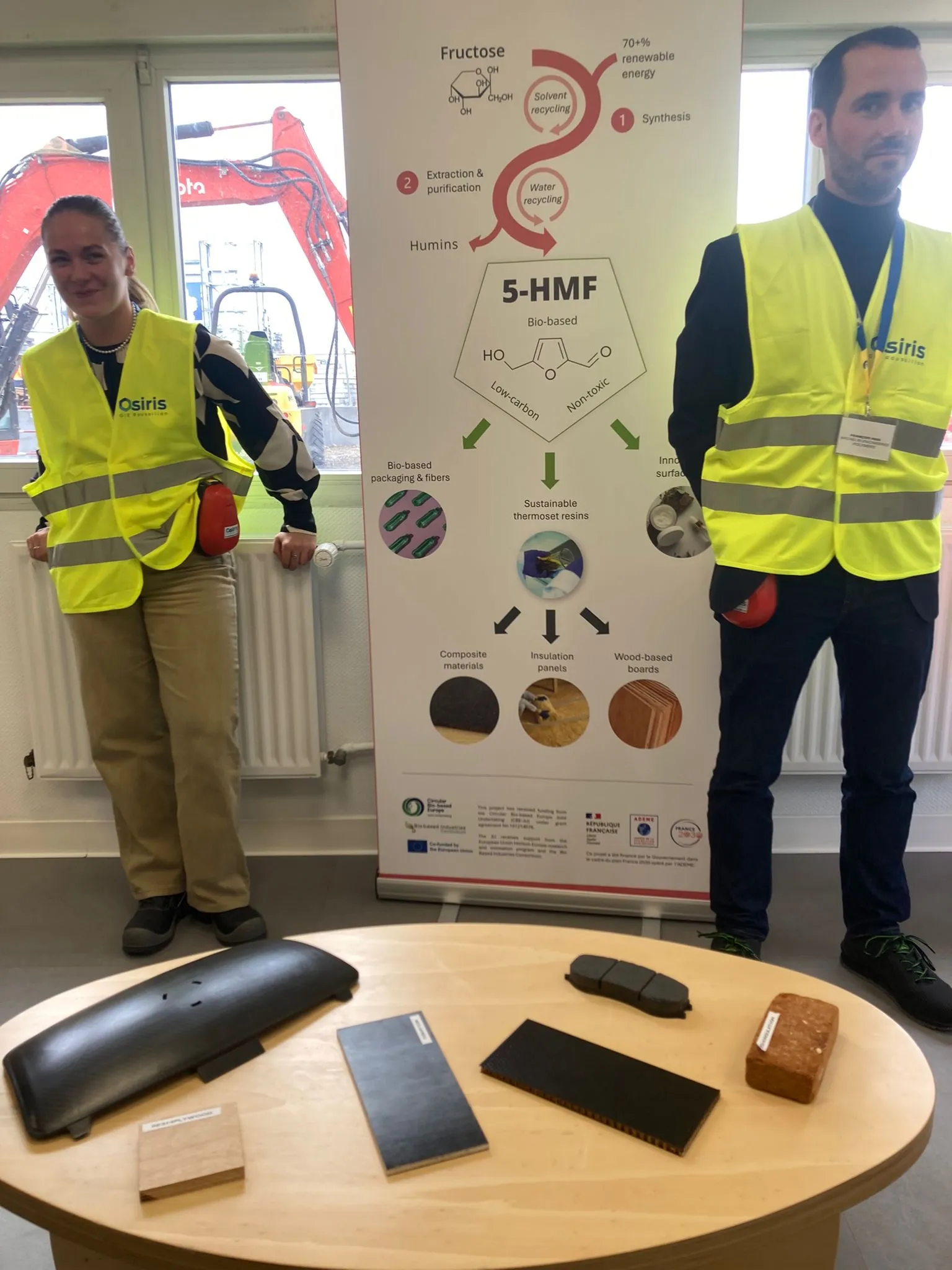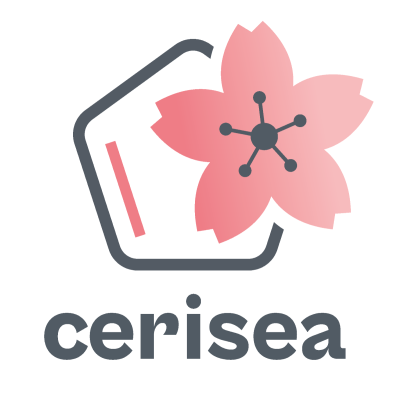Today, a 12-partner consortium led by Michelin officially launched the construction of Europe’s first industrial-scale production facility for the bio-based molecule 5-HMF in Roussillon, France. Derived from renewable plant-based sugars, 5-HMF is a promising molecule that can replace fossil-based ingredients in applications such as resins, coatings, plastics and crop-science materials. Already used in ResiCare resins developed by Michelin, it helps reduce exposure to harmful substances and lowers environmental impact while maintaining strong technical performance.
The facility will have a production capacity of 3,000 tonnes per year, making it the largest 5-HMF production site in the world. This milestone marks the start of a new phase for the CERISEA flagship, a €20 million project funded by the Circular Bio-based Europe Joint Undertaking (CBE JU).
Located in the OSIRIS industrial platform in Péage-de-Roussillon, the new facility represents a significant step forward for Europe’s green chemistry and bio-based industries. Operations are planned to start beginning of 2027, creating about 30 direct jobs and strengthening the region’s industrial base.
CERISEA shows how European collaboration can strengthen our bio-based industry. This project demonstrates that sustainability and competitiveness can progress together, creating new industrial opportunities while supporting Europe’s green goals.
Nicoló Giacomuzzi-Moore, Executive Director of CBE JU
A new path for sustainable chemistry
The CERISEA project aims to industrialise the production of 5-HMF through an innovative and resource-efficient process that uses renewable feedstocks from the agri-food sector and advanced fructose from non-food sources. The process will improve resource efficiency, reduce waste and set a new benchmark for sustainable chemical manufacturing in Europe.
The project will also develop new applications for 5-HMF derivatives and demonstrate how large-scale bio-based production can deliver tangible benefits for industry, people and the environment. By proving the competitiveness of bio-based molecules at scale, CERISEA contributes to Europe’s transition towards safer, more sustainable and resilient value chains.
Bio-based molecules meet growing expectations for transparency, safety and sustainability. This industrial unit gives Europe the capacity to produce a bio-based, non-toxic molecule that supports a competitive and responsible chemical industry.
Quentin Faucret, CEO of Michelin Engineered Polymers
A European collaboration advancing innovation
Coordinated by Michelin, the CERISEA consortium brings together 12 partners from across Europe, including industrial companies, research institutes and innovation clusters. Their expertise covers the full value chain, from biomass conversion to product applications and sustainability assessment.
CBE JU’s support for CERISEA highlights the importance of public-private partnerships in de-risking first-of-a-kind technologies and strengthening Europe’s leadership in sustainable bio-based chemistry. The project also contributes to regional development by revitalising the OSIRIS platform and creating high-quality jobs linked to the bioeconomy.
A milestone event for Europe’s bio-based future
The groundbreaking ceremony brought together about 70 participants, including representatives of the project partners, local authorities and the media. Guests visited the construction site, learned about the project’s technological ambitions and explored the potential applications of 5-HMF in the chemical and materials sectors.
The start of construction marks a major step forward for Europe’s bio-based transition. CERISEA embodies the shared ambition of its partners to scale up sustainable innovations and to build a more resilient, competitive and environmentally responsible chemical industry in Europe.
